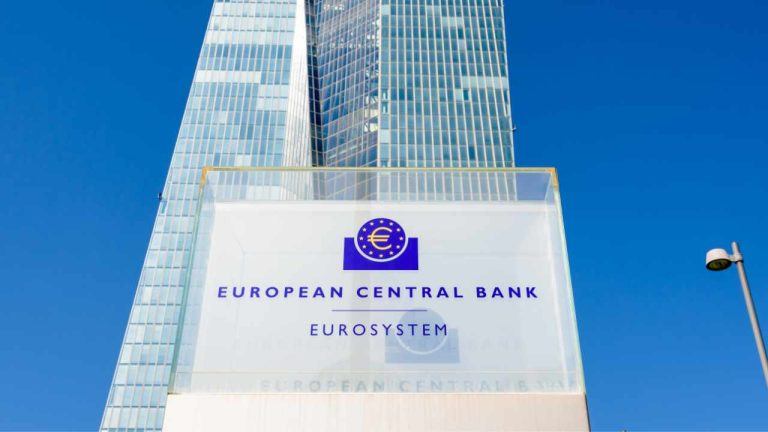 While the European Central Bank is studying the possible issuance of a Europe-wide CBDC, the digital euro, not all Europeans are fully behind this idea. Germany is particularly concerned about the privacy aspects of this implementation, as most transactions and payments are still made using cash, and citizens are reluctant to share their personal information. […]
While the European Central Bank is studying the possible issuance of a Europe-wide CBDC, the digital euro, not all Europeans are fully behind this idea. Germany is particularly concerned about the privacy aspects of this implementation, as most transactions and payments are still made using cash, and citizens are reluctant to share their personal information. […] Skepticism about the digital euro is strong in Germany, especially among older citizens who prioritize privacy and security in financial transactions. Many Germans remain resistant to the idea of a digital currency, with about half unable to imagine using it. Bundesbank President Joachim Nagel has called cash “sacred” in Germany, reflecting deep-rooted concerns about losing […]
Skepticism about the digital euro is strong in Germany, especially among older citizens who prioritize privacy and security in financial transactions. Many Germans remain resistant to the idea of a digital currency, with about half unable to imagine using it. Bundesbank President Joachim Nagel has called cash “sacred” in Germany, reflecting deep-rooted concerns about losing […]

The trial was part of an initiative set up by the European Central Bank to identify how blockchains can facilitate central bank money settlement.
Italy’s state-owned bank Cassa Depositi e Prestiti SpA has just completed a $27.2 million digital bond issuance with trillion-dollar investment bank Intesa Sanpaolo using Ethereum layer-2 Polygon.
The transaction was part of a trial conducted by the European Central Bank to identify new solutions for central bank money settlement of wholesale transactions carried out on blockchains, Intesa Sanpaolo explained in a July 18 statement.
It was the first transaction of its kind since Italy introduced its FinTech decree law, which governs the issuance and circulation of financial instruments in digital form.

The central bank has been experimenting with multiparty computation, which could support the entire European economy in the future.
Central banks worldwide are increasingly exploring blockchain technology adoption, with the European Central Bank (ECB) being the latest example.
The ECB recently completed a blockchain experiment for its central bank digital currency (CBDC) with Zama, according to the firm's chief academic officer, Nigel Smart.
He said during a panel discussion at FHE Summit 2024:
 The European Central Bank (ECB) has published its first progress report on the digital euro preparation phase, highlighting key design features and ongoing developments. The report emphasizes high privacy standards for both online and offline payments, aiming to provide users with a cash-like level of privacy. First Progress Report on the Digital Euro Preparation Phase […]
The European Central Bank (ECB) has published its first progress report on the digital euro preparation phase, highlighting key design features and ongoing developments. The report emphasizes high privacy standards for both online and offline payments, aiming to provide users with a cash-like level of privacy. First Progress Report on the Digital Euro Preparation Phase […] The president of Germany’s central bank has highlighted the ongoing debate about the holding limit for the digital euro, Europe’s central bank digital currency (CBDC). He noted that recent Bundesbank research indicates that the optimal amount could be in the range of 1,500 to 2,500 digital euros per person. ‘The Jury Is Still Out Here’ […]
The president of Germany’s central bank has highlighted the ongoing debate about the holding limit for the digital euro, Europe’s central bank digital currency (CBDC). He noted that recent Bundesbank research indicates that the optimal amount could be in the range of 1,500 to 2,500 digital euros per person. ‘The Jury Is Still Out Here’ […] The European Central Bank announced cuts of 0.25% (or 25 basis points) on three of its main interest rates: the main refinancing operations, the marginal lending facility, and the deposit facility. President Christine Lagarde emphasized that future decisions regarding additional cuts will depend on market reactions and evolving data. European Central Bank Cuts Interest Rates […]
The European Central Bank announced cuts of 0.25% (or 25 basis points) on three of its main interest rates: the main refinancing operations, the marginal lending facility, and the deposit facility. President Christine Lagarde emphasized that future decisions regarding additional cuts will depend on market reactions and evolving data. European Central Bank Cuts Interest Rates […]

The ECB is widely anticipated to implement a 0.25% rate cut this week, following seven consecutive months of inflation easing across the eurozone.
Bitcoin inflows could see an increase this week following a key monetary policy decision in the European Union.
The European Central Bank (ECB) is expected to cut interest rates by 0.25% to 4.25% on June 6. The rate cut could boost investor appetite for risk assets, such as Bitcoin (BTC), according to Jag Kooner, head of derivatives at Bitfinex. Kooner told Cointelegraph:
The rate cut expectations come during a period of slowing inflation in Europe. May’s headline Consumer Price Index (CPI) is expected to come in at 2.6% — potentially marking the eighth consecutive month of inflation below the 3% mark.

The European Central Bank is too busy attacking Bitcoin to worry about the myriad of real scams perpetrated by con artists in the industry.
FTX co-founder Sam Bankman-Fried was sentenced to 25 years in jail. Apple co-founder Steve Wozniak just won an appeal against YouTube and the use of his likeness in promoting cryptocurrency scams on the site. Crypto scammers (or the platforms they use) are increasingly getting caught and held accountable for their actions. Cryptocurrency is mainstream, meaning mainstream attention to coins, tokens, or platforms that seem “too good to be true” is met with widespread awareness that they are, indeed, too good to be true.
Unfortunately, as cryptocurrency regains popularity, more scams will appear. And one popular regulatory approach — criticizing Bitcoin (BTC) — is only serving to push more people into criminals’ clutches. I have personally been impersonated on social media due to my association with blockchain, and the criminals behind it attempted to swindle funds from my followers and friends. Despite filing police reports and injunctions, no progress has been made in catching them.
There are plenty of problems in cryptocurrency that are well worth attacking. But from Europe to the United States, regulators fight the same straw “bogeyman” of Bitcoin. The European Central Bank’s latest comments serve as an example: "Bitcoin has failed on the promise to be a global decentralized digital currency and is still hardly used for legitimate transfer,” ECB officials Ulrich Bindseil and Jürgen Schaaf wrote in a post for the ECB’s blog.